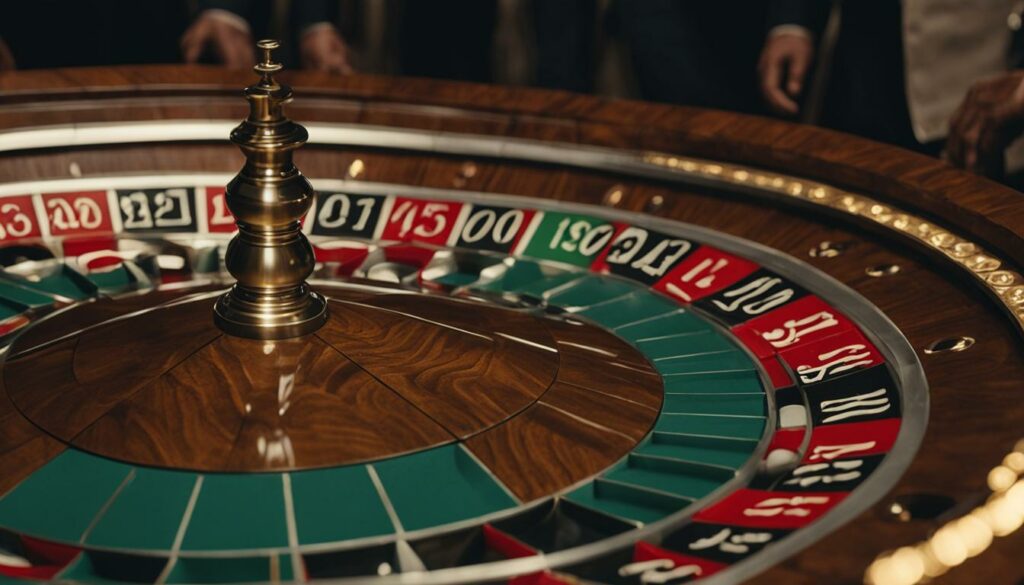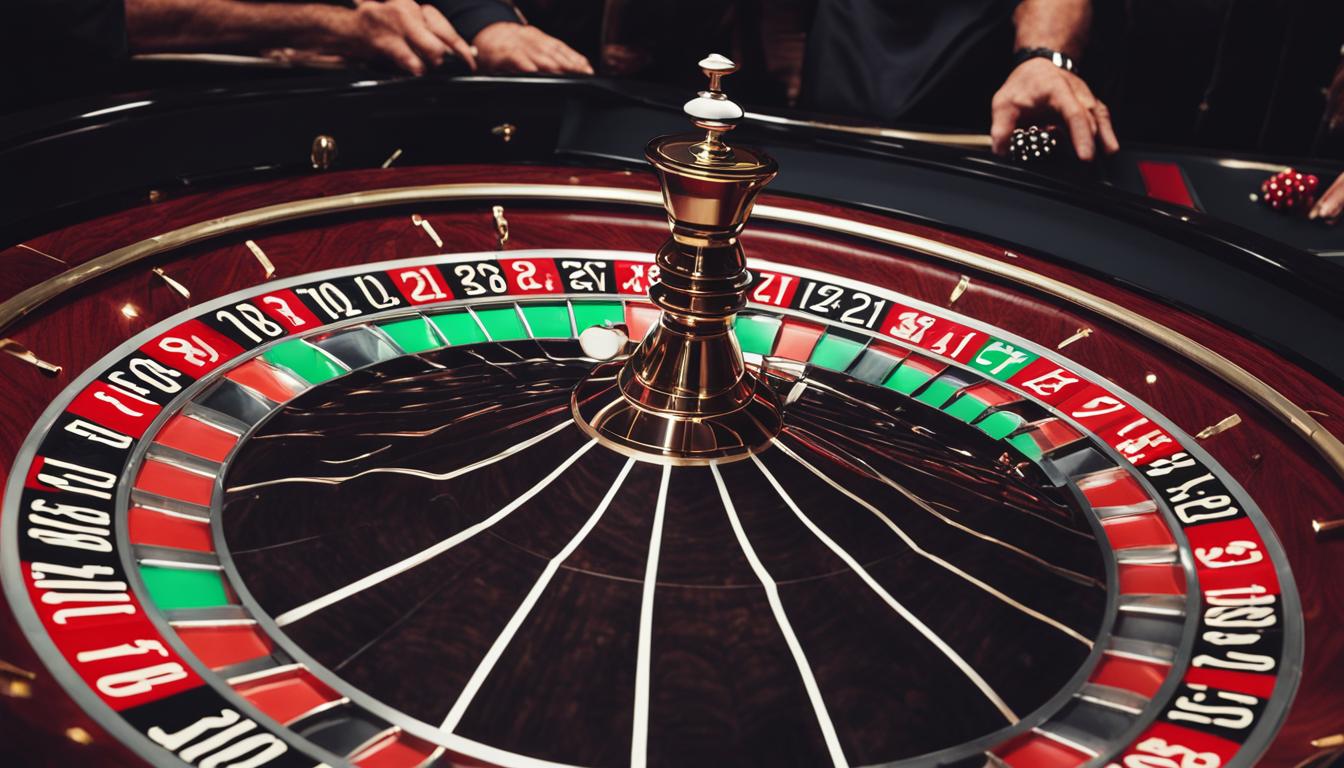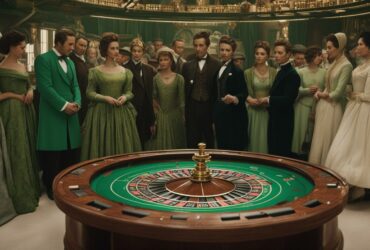Roulette has a long and fascinating history that has intrigued casino enthusiasts for centuries. In this article, we will delve into the origins of roulette and explore where the iconic game was invented. If you’ve ever wondered about the history, origin, and who invented roulette, this article is for you. Let’s take a journey back in time and explore the fascinating history of one of the world’s most beloved casino games.
Before we dive into the birthplace of roulette, let’s take a quick look at some SEO relevant keywords: where was roulette invented, origin of roulette, history of roulette, who invented roulette. Remember these keywords as we explore the exciting past of the game of roulette.
But first, take a look at this image that represents the evolution of roulette over the centuries.
Early Forms of Gambling and the Birth of Roulette
It’s difficult to trace the exact origins of roulette, but historians believe that the game was inspired by various early forms of gambling. For example, games involving spinning wheels and ball-bearings were popular in many cultures throughout history, such as the Italian game of Hoca and the English game of Roly Poly. Additionally, some historians suggest that the Chinese game of Baige Piao, which involved betting on patterns drawn from a circular fan, may have also influenced the development of roulette.
Despite these precursors, roulette as we know it today is generally believed to have originated in France in the 18th century. The exact birthplace of the game is a matter of some debate, but most sources suggest that it was first played in either Paris or Bordeaux. From these cities, the game quickly spread to other parts of France and beyond.
| Country | Year of First Roulette Appearance |
|---|---|
| France | 1796 |
| Germany | 1801 |
| United States | 1790s |
| United Kingdom | 1800s |
As roulette gained popularity throughout Europe and beyond, different variations of the game began to emerge. For example, some casinos in Germany introduced a variant known as German roulette, which featured a slightly different wheel design than the French version. Meanwhile, American casinos developed their own version of the game, which included an additional 00 slot on the wheel.
The Role of Blaise Pascal in Roulette’s Invention
Blaise Pascal, a French mathematician, physicist, and inventor, has been credited with the invention of roulette. His work on probability theory in the mid-17th century is believed to have inspired the development of the game.
However, some historians have proposed alternate theories that suggest the game originated in China or was created by European monks. Nevertheless, Pascal’s contributions to roulette’s invention cannot be overlooked.
In a quest to invent a perpetual motion machine, Pascal developed a spinning wheel in 1655 that resembled the modern roulette wheel. The mechanism was not created specifically for gambling purposes but was initially used for scientific experiments.
“The Roulette wheel is my favorite toy.” – Blaise Pascal
It wasn’t until later that the game of roulette was introduced, with Pascal’s roulette wheel providing the foundation for the game’s invention.
Pascal’s role in the creation of roulette remains a topic of interest and debate among historians and researchers. Nevertheless, his contribution cannot be denied, and the game of roulette has become a popular fixture in casinos around the world.
The Evolution of the Roulette Wheel
The origins of the roulette wheel can be traced back to the 17th century. The original roulette wheel was designed by the French mathematician Blaise Pascal in the hope of creating a perpetual motion machine. However, this invention later transformed into the popular casino game we all know and love today.
Over the years, the roulette wheel went through several changes and modifications. The early wheels contained numbered pockets that were colored black and red, with one or two green pockets reserved for the house or casino. Eventually, the green pockets were standardized to two, which improved the house edge.

In the late 1800s, Francois Blanc, a prominent figure in the gambling industry, introduced the single zero roulette wheel. This modification helped casinos increase their profits and became extremely popular in Europe. Meanwhile, the American roulette wheel continued to feature both a single and double zero, which created a higher house edge.
In the 20th century, the roulette wheel underwent more changes, including improvements in manufacturing techniques that allowed for more precise and consistent designs. Nowadays, the roulette wheel is a standard fixture in most casinos around the world and remains a popular game among both beginners and experienced players.
Roulette’s Journey to the Casinos of Europe
After its invention in France in the 18th century, roulette quickly gained popularity and soon spread to other parts of Europe. In Germany, the game was known as “Roulette” or “Roulet” and became a popular attraction in casinos across the country. In the 19th century, roulette made its way to Monte Carlo, a small but luxurious town in Monaco known for its opulent casinos. The Monte Carlo casino became the quintessential destination for roulette enthusiasts and high rollers, contributing to the game’s widespread appeal.
Roulette’s popularity in Europe can be largely attributed to its simple yet engrossing gameplay. The game’s rules were easy to understand, making it accessible to players of all skill levels. The presence of house edges and various betting options made the game more challenging and engaging. What’s more, the mystique surrounding the spinning wheel and the anticipation of where the ball would land only added to the excitement.

The popularity of roulette in Europe eventually led to the game’s arrival in America. In the next section, we will explore the impact of roulette in America and the variations that emerged as a result.
If you miss Roulette, play the dice game here. happyfun88 เว็บตรง
Roulette’s Arrival in America and Modern Variations
After its introduction to Europe, roulette eventually made its way to America. Although the game remained mostly the same, a few modifications and unique variations were made to make it more interesting to the American audience.
The first difference was the addition of a double zero (00) slot on the roulette wheel, alongside the standard single zero (0) slot. This modification increased the house edge, making the game less favorable for players in terms of odds, but it also increased the potential payout for winning bets placed on the double zero slot. This variation became known as the American roulette.
Another popular variation is the Rapid Roulette, which uses a smaller and faster roulette wheel to speed up the game. This variant also allows players to place their bets using individual touch-screen terminals, eliminating the need for chips and making the game more convenient and accessible.
“The introduction of roulette to America brought about new variations of the game, each with its unique features and advantages.”
Conclusion
In conclusion, the birthplace of roulette is a topic of much debate among historians. However, it is widely believed that the game was invented in France during the 18th century. Its popularity quickly spread across Europe and eventually made its way to America. Today, roulette remains one of the most popular casino games worldwide, with modern variations that continue to evolve.
Understanding the history of roulette is essential for appreciating its significance as a casino game. Its invention and evolution have left an indelible mark on the gambling and entertainment industries. As the game’s popularity continues to grow, its historical roots serve as a reminder of where it all began.
Overall, the history of roulette is a fascinating subject that continues to intrigue and inspire players and enthusiasts alike. Its origins may be shrouded in mystery, but its enduring popularity is a testament to its enduring appeal.
FAQ
Where was roulette invented?
Roulette was invented in France.
What is the origin of roulette?
The origin of roulette can be traced back to 18th-century France.
Who invented roulette?
The exact inventor of roulette is unknown, but it is often attributed to Blaise Pascal, a mathematician and philosopher.
What is the early history of roulette?
Before the invention of roulette, there were various forms of gambling that contributed to its development. The precise early history of roulette is not well-documented.
Where did roulette originate?
Roulette is believed to have originated in France, specifically in the city of Paris.
What is the role of Blaise Pascal in roulette’s invention?
Blaise Pascal is credited with making significant contributions to the development of the roulette wheel, which played a crucial role in the invention of the game.
What are the origins of the roulette wheel?
The roulette wheel is believed to have originated in Italy in the 17th century. However, the modern version we see today was further developed in France.
How did the roulette wheel evolve?
Over the years, the roulette wheel underwent various changes and improvements in terms of its design, numbering, and overall mechanics.
What is the history of roulette?
The history of roulette encompasses its invention in France, its journey to the casinos of Europe, and its subsequent arrival and adaptations in America.
How did roulette become popular in Europe?
After its invention, roulette gained popularity in European casinos, particularly in countries like France, Germany, and Monte Carlo.
Where was roulette invented?
As mentioned earlier, roulette was invented in France.
What are the modern variations of roulette?
In addition to the traditional European and American versions of roulette, there are now various modern variations of the game, such as Mini Roulette and Multi-Wheel Roulette.
What is the historical significance of where roulette was invented?
The birthplace of roulette in France holds historical significance as it marked the beginning of a popular and iconic casino game that has lasted for centuries.













Leave a Reply